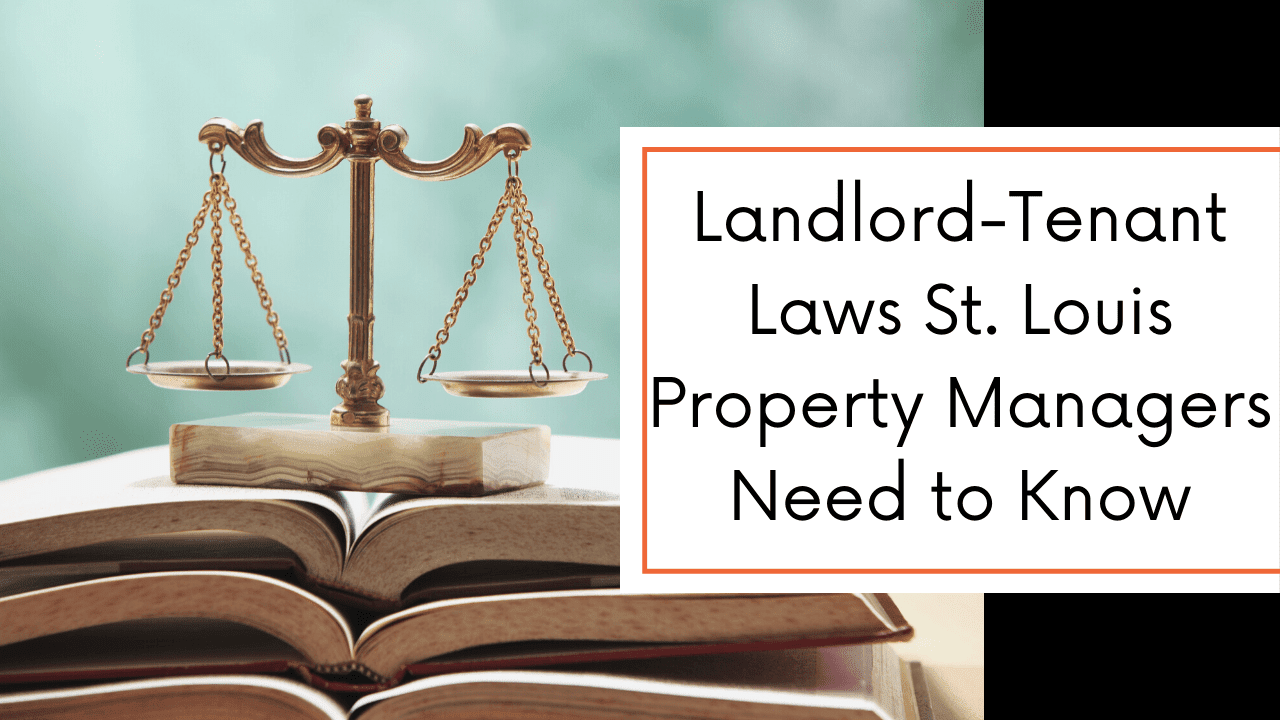
It’s easy to make a mistake when you’re renting out a property in St. Louis. The problem is – those mistakes are usually expensive. Sometimes, they can put you in real jeopardy. Property management companies are the experts on all these rules and regulations. Even experienced investors need to rely on the professional partners when it comes to complying with property management laws and other real estate requirements.
Today, we’re sharing information on some of the most frequently discussed topics when an owner or investor is unsure about their risk and liability when it comes to their rental real estate.
St. Louis Property Management Licensing
Under the Missouri real estate licensing laws, leasing a home is considered a real estate brokerage service. That means property managers in St. Louis who lease and manage your home must have a real estate license.
This does not mean that you need a broker’s license in order to manage your own property. If you’re renting out a home you once lived in yourself, or you are self-managing a couple of units in a building, a license isn’t necessary. However, if you’re hiring a professional St. Louis property management company, make sure they are licensed. You can do a license search with the Missouri Real Estate Commission.
Fair Housing and Anti-Discrimination Laws
Federal, state, and local fair housing laws apply to all rental properties, and they are in place to protect people against discrimination. You have to be mindful of your advertising, screening, and management processes. You can’t ask questions on the rental application that would violate those fair housing laws, and you can’t treat a service animal the same way you would treat a pet. Make sure you know the protected classes, and keep all of your leasing and screening procedures documented and fair.
Collecting Rent and Eviction
It’s frustrating for landlords and owners when rent doesn’t come in on time. If you’re going to evict a tenant, you have to make sure you follow every step provided in the Missouri law. You can’t simply change the locks and kick the tenant out. There are notices you have to serve and time periods you must follow. Make sure you have a strict rent collection process in place and that you screen tenants carefully so eviction can be avoided whenever possible.
Security deposits are also heavily regulated. You can’t collect more than the equivalent of two months’ rent as a security deposit, and you have to return the money to your tenant within 30 days of move-out. You can deduct from the security deposit for things like unpaid rent and damage, but you cannot deduct for wear and tear, which is expected.
Have a move-in and move-out checklist that you use to conduct thorough inspections. This will help you demonstrate whether there was damage left by the tenant, which justifies your use of the security deposit.
Habitability Laws for Landlords and Owners
 Your main responsibility is to provide a safe and habitable home for your tenants to live in. You cannot neglect the repairs that are needed. Tenants must have heat, running water, and electricity. It’s important to disclose whether there’s any lead paint in the property, and you have to respond immediately to mold, pests, and other problems.
Your main responsibility is to provide a safe and habitable home for your tenants to live in. You cannot neglect the repairs that are needed. Tenants must have heat, running water, and electricity. It’s important to disclose whether there’s any lead paint in the property, and you have to respond immediately to mold, pests, and other problems.
Don’t put yourself at risk for legal issues and tenant disputes.
We have a lot of resources we can recommend that allow you to dive deeper into property management laws and what they mean for your St. Louis real estate investments. Contact us at Deca Property Management.

